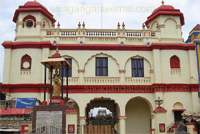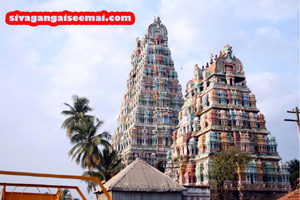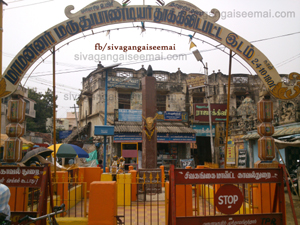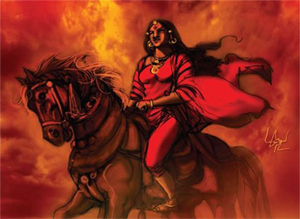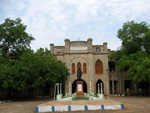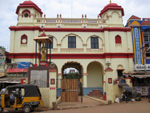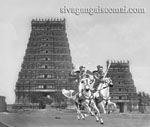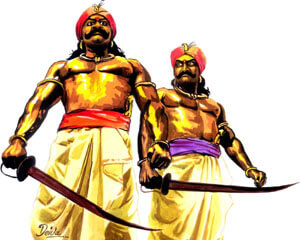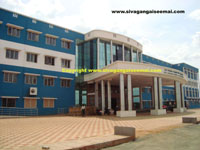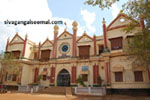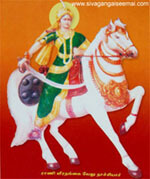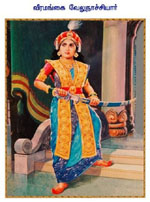EDWARD LORD CLIVE’S PROCLAMATION OF 1 St DECEMBER 1801
On the 1st of December 1801 on the suppression of the rebels and execution of the leaders, the enemy issued a proclamation. Formulated to impress the people with the determination of the British government to consolidate its newly asserted power, it annouced a policy of reconciliation of the vanquished, and administered a warning to the inhabitatns against any further attempt at defiance to its authority and guaranteed security to the allies. Beginning with an apparent note of sympathy for the fallen, the proclamation of Governor Edward Clive proceeds in a manner typical as of an imperial ruler:
“The Right Honourable Governor in Council regrets that the desperate resistance opposed to the British troops should have been attended with so great a loss of lives to the deluded inhabitants. At the same time his Lordship deems it to be his duty to impress on the minds of the inhabitants, sherogars and poligars of the southern provinces, the dangers of provoking the just indignation of the British Government and the fruitless attempt of opposing the untried strength of the rebels to the steadiness, valour and discipline of the British forces. The people of the Southern Provinces have now witnessed that the difficulty of resisting the force of the Company’s Government in open arms is not greater than that of evading the perseverance vigilance and activity of the English troops even in the native woods. From the centre of the Jungles the authors of the late rebellion have been brought before the tribunals erected by the Governor in Council for the trial for that hateful and desperate offence. The infatuated obstinacy of those leaders in neglecting the warning voice with which the Governor in Council had announced to them the danger of Rebellion has rendered indispensably necessary the signal punishment of their crimes. His Lordship encourages a well - founded expectation that the ingenious manner to which those misguided chieftains have terminated their ambitious and criminal career will indelibly fix on the minds of their surviving families and inhabitants the danger of defying the British Government in arms.
At the same time that the Right Honourable Governor in Council directs the attention of the people of the southern provinces to the just punishment of unprovoked rebellion. His Lordship contemplates with just pride and satisfaction the example of steady attachment and honourable fidelity which the British Government has experienced from many of its dependents in the course of this unnatural and avoidable warfare, as in the former case the Governor in Council has been reluctantly compelled to exhibit a memorable example of the crime of sedition, so in the latter instance his Lordship in Council has had the pleasure of augmenting the security, wealth and happiness of those, whose zeal and loyalty have entitled them to the distinguished favour and protection of the British Government. Though the necessity of preserving tranquillity and regular governemnt has compelled the Governor in Council to punish the authors of Rebellion. His Lordship has abstained from appropriating to the Company the lands forfeited by that dangerous crime, they ( the rebels) will have had the satisfaction of noticing the confidence reposed by the British Government in its subjects by supplying those forfeited lands to the means of augmenting the estates of the faithful chiefs and from these examples they may derive the certain means of appreciating the principles of the British Government. The Right Honourable Governor in Council encourages a reasonable hope that the causes of Future commotion in the southern provinces have been suppressed and the chieftains and other inhabitants will rely on the protection of the British Government in the assurance of their ancestors. His Lordship directs the people of the southern provinces to deliver their fire arms for which compensation will be paid at the rate of ten rupees for each musket five rupees for each matchlock and two rupees for each pike. However according to traditional practices and hereditary customs and the personal feelings of the chieftains the Governor in Council authorizes each of them to retain a certain number of peons carrying pikes for the purpose of maintaining the pomp and state heretofore attached to their persons.
The Right Honourable Edward Lord Clive, Governor in Council of Fort St. George and its Dependencies, having now laid the foundation of future permanent tranquillity in the southern provinces by the entire suppression of “the late united extensive and flagrant Rebellion,” being farther enabled to corroborate those foundations by the establishment of the undivided authority of the Company’s Government in those provinces and desirous of relieving the minds of the people from further solicitude of the punishment provoked by the late Rebellion, proclaims to the said inhabitants that with the exception of Vira Pandya Nayak and Muthiah Nayak of Panjalam Kurichi, Melappan of Ramnad and the persons now under restraint, whom it is his Lordship’s intention to punish by banishment beyond the seas, the British Government now extends to all other persons who may have been seduced to follow the desperate fortunes of the principal rebels, a free and full pardon of the offences which they have committed against the Company.
The Governnor in Council therefore assures such persons as may have been implicated in the crime of the late Rebellion that His Lordhip has relinguished every intention of prosecuting the punishment of that Rebellion deeming the examples already exhibited to their observation to convey a sufficient impression of the power of the British Government. In the confident expectation of reclaiming the people of the southern provinces from the habits of predatory warfare and in the hope of reducing them to resume the acts of peace and agriculture the Governor in Council announces to them that it is the intention of the Government to establish a permanent assessment of revenue upon the principles of zamindari tenures, which assessment being once fixed shall be liable to no change in any time to come, that the poligars becoming by these means zamindars of their hereditary estates will be exempted from all military service and the possessions of their ancestors will be secured to them under the operation of limited and definite laws, to be published as well for the purpose of restraining the British officers to the regulations and ordinances of the Government, as of securing to the people their property, their lives and religious usages of their respective castes. The Board communicated a letter on 13th December 1802 to the Collector.Government approve the action of the Collector in having temporarily employed the Nabob’s troops in putting down the disturbances in Sivaganga and Tinnevelly and authorize the payment of arrears to the troops. They also sanction the entertainment of a sibbandy establishment at a cost of St Pag 660-17-5 to resist the depredation of the rebels at Sivaganga, but ask the Collector to disband the establishment, when it is found unnecessary.
BANISHMENT BEYOND THE SEAS
In accordance with its policy of revenge, as announced in the proclamation, the enemy proceeded to expel the leaders who escaped the gallows, beyond the seas. It condemned seventy three patriots from the far south alone for perpetual banishment to Prince of Wales Island, Penang. The British official records furnish the list of these victims. 1. Vengum Peria Wodaya Tevar of Sivaganga, 2. Doraiswamy, son of Marudu Pandyan 3. Bomma Nayak of Verapur 4. Jaganatha Ayyar, rebel amildar of Ramnad 5. Andiappa Tevan 6. Sadamayan 7. Koniami Tevan 8. Dalawai Kumara Swami Nayak of Panjalamkurichi 9. Kumara Tevar of Melur 10. Pandian of Pandiamputtur 11. Muthu Vira of Arankulam 12. Sawmy of Manacaud 13. Ramaswamy 14. Eralappa Tevar of Nanguneri 15. Pandyan Nayak of Combadi 16. Mauda Tevan 17. Malayil Madan 18. Chinna Pitcha Tevan 19. Vira Pandya Tevan 20. Vira Perumal Tevan 21. Karuppa Tevan 22. Suluamonia 23. Nanda Swamy 24. Perumal 25. Woodia Tevan, son of Chinna Pitcha Tevan 26. Devi Nayak, son of Chinna Pitcha Tevan 27. Muthu Rama Tevan 28. Manda Tevan 29. Payen 30. Alaga Nambi 31. Vaikunda Tevan 32. Siriana Tevan 33. Koniallum 34. Mullu Vedavoo 35. Santhanam 36. Virabhadran 37. Chalamban 38. Payen 39. Ramaswamy 40. Iralappan 41. Kumaraswami 42. Virapandyan 43. Venkatarayan 44. Woodiar 45. Muthu Rauk 46. Muthu Rauk of Anakulam 47. Choku Talavan of Trickerngudi 48. Iralappa Tevan 49. Mallaya Nayakkan of Elampatti 50. Suluvamonia Nayak of Katta Nayakkanpatti 51. Tomachi Nayak 52. Suluamonia Nayak of Audinore 53. Ramaswamy, grandson of the Poligar of Kulathur 54. Pitchandi Nayak of Eruvupoparam 55. Dalawai of Kallumaddam 56. Chinna Madan of Pasuvanthanai 57. Vaidim Murthi of Kandiswaram 58. Dalawai Pillai, a deshakaval manigar 59. Suluamaniam, his son 60. Peddana Nayak, who commanded the rebels of Tutukudi commiserate him............. I still seem to see the combination of affection and despair, which marked the fine countenance of my young friend, Doraiswamy, as I handed him into the boat, and the manly and silent misery, which his companions in affliction displayed on quitting their dear native land for ever. The voyage lasted for seventy - six days. So rigorous was the restraint and so callous was the severity, that the enemy kept its victims hand - cuffed with iron in pairs and huddled them together throughout this long period of agony. However hand - cuffs were struck off from six of them, who were directed to cook food for the rest. Water that was stored for the supply to the prisoners, was so meagre, that it soon exhausted. The patriots suffered such intolerable misery that many of them fell sick. One died of fever while another slipped into the depths of the sea. The rest reached the strange land of Penang but no sooner had they landed than one - third of them, who were healthy enough to move, wandered at large as in bewilderment, vanishing into the ranks of the local population. With the banishment, James Welsh concluded, “ended the most harassing warfare in which the expenditure of life had been profuse. “Never shall I forget the day, when on the wharf at Tutucorine, I consigned my charge over to Lieutenant Rockhead. I still seem to see the combination of affection and despair which marked the fine countenance of my young friend Doraswamy; as I handed him into the boat and the manly and silent misery, which his companions in affliction displayed on quitting their dear native land for ever. Here, to all appearance our acquaintance was to end; but fotune had still another pang in store for me, for being forced to sea for my health in the year 1818, and landing at Penang I received a sudden visit from a miserable decrepit old man, who, when, without the most distant recollection of his person or acquaintance, I demanded his name and business looked for some time in my face, the tears ran down his furrowed cheek, and at length he uttered the word “Dora Swamy”. It came like a dagger to my heart. the conviction was instantaneous. My poor young prisoner stood before me, changed, dreadfully changed in outward appearance, but still with the same mind, and cherishing the remembrance of former days and former friendships. The casual hearing of my name had revived his affection, and I much fear, the mistaken hope, that an advancement in rank might afford me the means of lessening his misery. He even entreated me to be the bearer of letters to his surviving family, but this, I understood was contrary to the existing orders; since, though I found the Governor the late Colonel Bannerman, my former commanding officer, kind considerate, it did not appear to rest with him, and I was compelled to decline. Let me however, in conclusion, express a hope that this narrative may fall.
into the hands of some kind- hearted Director of that Honourable Company, which I have served so long, and be the means of alleviating, if not entirely removing the sufferings of an innocent man; the country being now completely settled; and no chance of any ill effects, as regards state policy, likely to accrue from such a compassionate measure”. The tragic story of the struggle for freedom ended in an equally moving note when Doraiswamy, the youngest and favourite son of Marudu Pandyan made a futile attempt to return from exile from Penang to the motherland. Much of what happened to the banished patriots is unknown. The saga of their ordeal passed into oblivion. What glimpses have come down to us testify that within six months of banishment one third of them died in the strange land. The untold suffering that they experienced in the course of the voyage and the mental agony that constantly afflicted them quickened their sad end. Many more would have perished subsequently prematurely.
The original name of Doraiswamy was Muthuvaduganathan. Chinna Marudu named his son as “ Muthu Vaduganathan” in loving memory of his king Muthu Vaduganatha Rajah who elevated him as Pradhani of Sivaganga Kingdom. It is said that Muthu Vaduganathan was very handsome during his childhood days. He was “the darling child “among the wives ( Duraisanees) of the English people. The word “darling” of the Duraisanees corrupted into Doraiswamy. An unauthorised source reveals that on the orders of the Company, the Penang Government released Doraisamy, son of Chinna Marudu from Penang jail. Doraisamy had returned to his motherland India in 1821 and lived at Madurai. Later he passed away at Sivagnga and was cremated at Kalaiyarkoil. The Zamindar’s (Peria Murdoo Shervagar) Family submitted a pension application on 11th May 1821 to the Secretary to Government Judicial Department. Thangam and Audhiveera Lakshmi daughters of the late Peria Murdoo Shervagar formerly Zamindar of Sivaganga represented that after the death of their father their mother Meenakshi Ammal was granted a pension of pag 40 and that after her death the pension was discontinued. They requested that as they were women having a large family, to support, the pension might be cotinued. The Collector simply forwarded the petition stating that the family consisted of the 1st and 2nd wife, 5 grandsons, I grand - daughter and 25 servants and dependants and that the petitioners were without any means of support. Pension application of Murdoo son of late Muthu Vaduganathan dated 19th May - 1891 presented to the Collector “ Mootoo Vadagu Shervagan - pension application by his son Murdoo Sherrvagaur. 1. The Collector forwarded to the Board an address presented to him by Murdoo Shervagar stating that his father (Doraiswamy) was transferred to Pulo Penang. When he was brought up to Madras, the superintendent of police desired him to state whatever he might require,. He presented a petition to Government praying for continued protection and for orders to live in Madura. He was taken sick and returned to Sivaganga where he died. The Company promised him a maintenance allowance but unfortunately he died. Murdoo Shervagaur requested that the allowance for maintenance might be fixed at Sooly ch 200 equal to Rs. 253-9-11 monthly.
2. The Collector stated that an enquiry it appeared that the family was maintained by the Zamindar of Shivagunga who made an allowance of Sooly ch 200 which ceased in 1805, for what reason he could not ascertain. The family was afterwards maintained by Ranni Mangaleswari Natchyar, the late Zamindarini of Ramnad and was at present in extreme poverty and distress. He therefore recommended a pagoda a day if Government thought that the family was entitled to any allowance at all. The Rebellion of 1800-1801 was organised with a predetermined motive of destroying British imperialism. It spread over an extensive region and assumed proportions of a mass movement. The popular leaders of whom MARUDU PANDYAN was the most conspicuos, spearheaded the struggle while the peasants furnished the fighting material. Relying upon guerilla tactics, the Gallant patriots won brilliant victories, liberated a vast territory and held the British power at bay. Yet ultimately they were defeated. This was more because of the support extended by the local princes to the alien ruler and the collapse of the simultaneous insurrections in Malabar and Mysore than due to any superior military strategy or striking power of the enemy. The struggle was attended with bitter ferocity and immense slaughter. The rebels paid more dearly than the English did, as they were neither disciplined nor adequately armed. Though the rebels had a well concerted plan of action, it did not work upto expectation. In the beginning the rebellion broke out in Coimbatore and Dindigul but the other parts of Tamil Nadu remained quiet. It was only when these rebellions were suppressed that fresh rising broke out in Tirunelveli, Madurai and Thanjavur. Hence the Company found it no impossible a task to crush the rebellion. still certain trends in the rebellion tend to establish that it assumed the proportions of a popular rebellion “Marudupandiyan” the servant of the Rajah’s but the implacable enemy of the European low wretches in his Jambu Dweepa Proclamation appealed to the major castes - the Brahmins, the Kshetriyas the Vysyas the Sudras and the Muslims to unite together and free the country from the stooges of European rule. Jumbu Deeepa Proclamation of Marudu Pandiyan was the first document which proclaimed the integration of India and the unity of Religions. The Proclamation was the claim call of a subdued race to rise against the tyranny of an external force. It is considered to be the harbinger of a great movement which would be the death knell of the British Rule.
Theodar Baskar, a Research Scholar conducted a study about different dogs. Later, in his research thesis about the dogs, he came to the conclusion that the South Indian Poligars trained “Rajapalayam dogs” to attack their enemies in the battle field. Further they trained such dogs to bite accurately the knees of the horses of the Cavalry of their enemies. Marudhu Brothers employed trained “ Kombai dogs” to protect Pandian fort at Kalayarkoil from enemy’s occupation. Further the people of different castes Maravars, Nadars, Totiens, Kallars, Parawas Gounders and Muslims joined the rebellion irrespective of their linguistic or racial considerations. The English records of this period refer to the inhabitants of different territoris flocking to the Rebel ranks quite voluntarily. In addition to these the Kuravai which was the war cry of the rebels and the Killah, a leaf piereced with the nail, when sent to the villages, served the purpose of summons to bring the Inhabitants to the battlefields. Still defeat came because of the military strength of the Company, the support of the allied powers and inferior equipments. The English administered their savagery with the crudest ferocity. They slaughtered the fleeing population, executed the messengers hanged father and sons upon common gibbet, paraded the mutilated bodies of the patriots through the streets and piked the severed heads on the highways. So dreadful was the horror that these vindictive outbursts of fury spread in the land that the ballads and legends, composed. during this period depicted them with pathos so moving and frightful that they haunted the memory of the Inhabitants generation after generation. Muthuswamy Pulavar composed Kummi Songs” called “ Sivagangai Charithrak Kummi and Ammanai” in Tamil. These kummi songs were dramatised depicting the heroic deeds of Muthuvaduganatha Rajah, Rani Velu Nachiyar, Pradhani Thanadavaraya Pillai and Marudhu Brothers, among the rural masses in those days. The legal heirs of Marudhu Brothers submitted mercy petitions for pensionary benefits and other help. But the British Government ignored their legitimate demands and needs and rejected their appeals.
Nana Sahib, the Architect of the Revolution of 1857 and his Advisor Ajimullah Khan worked, whole heartedly in support of the revollution of 1857. They had arranged dinner parties and invited the English people to attend such dinner parties. Azimullah Khan served cook under the British men. He was thorough in the English and the French languages well. Though he was deputed to represent the Peshwa’s cause to the Court of Directors in London, later he visited Crimea, Turkey, Afghanisthan to plead for the cause of the Revolutionaries to drive away the English from Indian soil. The other leaders of the Revolution of 1857 were Ahmed Shah, Kumar Singh Dandia Tope and Rani Lakshmi Bai of Jhansi who were inexperienced in the art of war. They opposed well experienced British Generals in the war in 1857. The Indian leaders were defeated in the direct war against the British army, but they were successful in their guerilla attack against the Engush army. They ransacked the English army for two years from May 1857 to November 1859 Once a christian teacher serving in a missionary convent in India, ordered his students to write an essay about” The Sepoy Mutiny” The master distributed white papers to the students to write about it. When the stipulated time was over, all the students submitted folded white plain papers to their master saying “We can’t write about it”. Thus the students showed their protest unanimously in a peaceful manner.
The English generals, the news editors and merchants narrated their experiences in the Sepoy Mutiny. But Indians could not write about it. They lamented in deep silence and agony. The English men wrote about 1857 Events. But in their writings there was the exposition of true enmity and no History. V.D. Savarkkar collected old history books on 1857 Events and verified records in England. With greatest efforts, research and with greatest patriotic feelings, he wrote a book “ The First War of Independence.” But the great upsurge of the Marudhu brothers and other patriots of the South of 1801 was not at all recorded in the History of the Indian War of Independence. The two wars were waged against the alien rule i.e, the British power in India, the sacrifices of Marudhu brothers and other patriots of the South had not come to lime light in an all India level.
The patriots of the South like Muthuvaduganatha Thevar, Rani Velu Nachiyar, Marudhu brothers, Vengai Periya Udayana Rajah, Veera Pandiya Kattabomman, Oomathurai, Gopala Nayak, Doraiswamy, Muthu Karuppa Thevar, Jeganatha Iyer, Dhoondaji Waug, Sevathiah, Gnanamuthu, Virappan, Milappan, Pooli Devan, Kerala Varma, Khan-I- Jah Khan, Hyder Ali and Tippu Sultan were not at all treated on a par with the leaders of the First War of Independence, In 1857 like Bahadur Shah, Nana Sahib, Rani Lakshmi Bai of Jhansi, Mangal Pandey or any other North Indian Revolutionaries. The sacrifices of the patriots of the South in the year 1801 had gone down in the History of the Freedom Struggle Movement in India “ unwept, unhonoured and unsung.”
However the Government of Tamil Nadu had recognised the great sacrifices of the patriots Marudhu Pandiars and sanctioned family pension to the kith and kin of Marudhu Pandiars in independent India. Marudhu Pandiars were executed on 24th October 1801, at Thirupathur in the present Sivagangai District. The Government of Tamil Nadu is honouring these great patriots by celebrating it as the Government function on 24th October every year. The Department of Posts honoured the memory of Marudhu Pandiars by issuing commemorative postage stamp and making First Day Cancellation Special cover in Madurai on 24th October 2004. The National Council of Educational Research and Training ( NCERT) published a book “A Struggle for freedom in English”. A map appended in this book shows Madurai, Sivagangai Ramanathapuram and Vellore the four places alone as the centres of early revolt in Tamil Nadu in all India level against the Company rule in India. Sivagangai occupies a prominent place as an early centre of revolt against the English rule in India.211
Sivaganga Tourist Places
By fb/Sivagangaiseemai Team / August 28, 2014Kalayarkoil Temple Photos
By Muthukumaran / September 1, 2014Quick Links
Maruthu Pandiyar History in Tamil
Read Maruthupandiyar History in Tamil...
Velu Nachiyar History in Tamil
Velu Nachiyar History in Tamil...
Sivagangai Palace
Sivagangai Palace photo gallery to view Read More ......
Sivagangai Car Festival
Sivaganga Photo Gallery
2008 - www.sivagangaiseemai.com
ALL Rights Reserved. Privacy Policy

